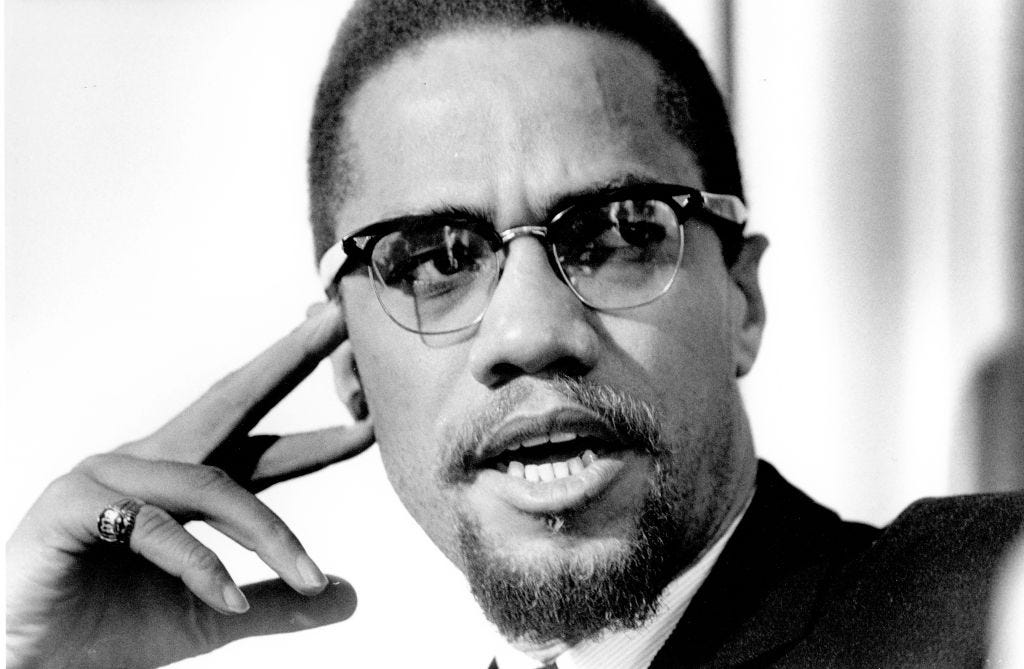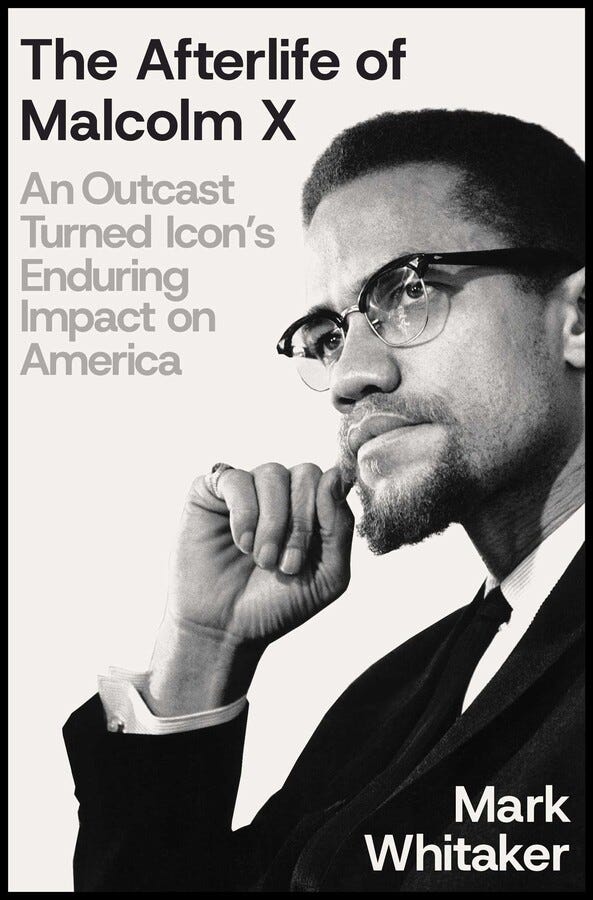The story of the story of Malcolm X
Journalist Mark Whitaker on how Malcolm X saw the future of politics, his cultural legacy, and the lessons he has for today's leaders
We’re going Live today, Tuesday, June 3, at 12:30 p.m. Eastern, with Working Families Party national director Maurice Mitchell. Watch on desktop at The Ink or join us from your phone or tablet with the Substack app. We hope to see you there!
When we talked to journalist Sam Tanenhaus about William F. Buckley, Jr., he told us about how prescient the conservative activist was about the importance of media, building his movement through a carefully orchestrated series of print and broadcast campaigns — an influencer before his time.
But he wasn’t the only one who saw the future of political communication. Malcolm X, who shares this centenary year with Buckley, also seems startlingly contemporary in his approach to media, and not just in his understanding that political events needed to be press events, but in his realization that to drive political change, he needed to change culture.
Malcolm’s own story was interrupted too soon. But it didn’t end with his assassination in 1965, and that’s the subject of The Afterlife of Malcolm X: An Outcast Turned Icon's Enduring Impact on America, the new book by veteran author and journalist Mark Whitaker, the former editor of Newsweek, Washington bureau chief for NBC News, and managing editor for CNN. Whitaker’s new book isn’t another biography of Malcolm X, but an examination of how and why his story has resonated across American culture since his death, reinvented and reinterpreted by generations since.
We talked to Whitaker about Malcolm’s approach to organizing and the media, how he foresaw today’s politics in his understanding that making change meant helping people redefine how they lived and saw and felt about themselves, why he remains a cultural icon, the lessons he can still teach American political leaders, and the future of the Democratic Party.
Malcolm X, you argue, is what he is to us today, not just because of what he did or represented in his lifetime, but because of the stories that have been told about him since, which go back to how he told his own story, and how storytelling shaped him.
So starting with the Autobiography of Malcolm X, the way he was depicted in the iconography and the mythology of the '60s, then Malcolm as he appears and is listened to, in hip hop, and in Spike Lee's movies, and the various biographies, a lot of people until now have been trying to make a case that Malcolm was one thing or another. I became interested in telling the story of how people have tried to claim him in different ways. That is historically significant.
The book also tells the story of how the media shaped political figures and public opinion, and vice versa, in the second half of the 20th century.
The thing that really comes out is how we look back through the lens of all these books and all these cover stories that have been written. That's how we know these people. I am very interested in how the press and the broader cultural gatekeepers of the time, the history of the time, shaped not only our memory of the time but also actually shaped events at the time.
Malcolm, as he's evolving in his last year, is constantly interacting with the press, and in a way that helped shape the way he was evolving and what his message was.
As you tell the story, he's ahead of his time in recognizing the power of news to influence opinion. You look back and you see people who learned from him, who realized, “Okay, I can make a media event out of what I'm doing,” and that gives it a different power. It prefigures how politics works today.






